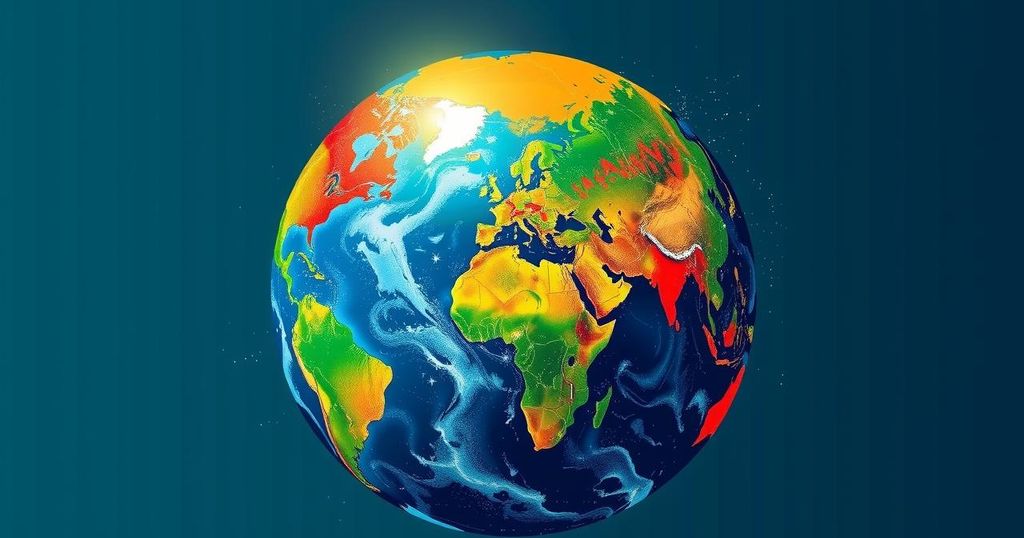Multilateral banks are vital in financing climate change initiatives, particularly in developing countries. They provide essential support for climate adaptation and transition to clean energy sources, with significant consequences for global climate goals. However, their continued investment in fossil fuels raises concerns about the effectiveness of their commitments to combat climate change.
Multilateral banks play an essential role in financing efforts to combat climate change, particularly for developing countries that face significant challenges in obtaining resources for climate adaptation and mitigation. As climate disasters become increasingly prevalent, these banks provide critical financial support to address the impacts of extreme weather events and transition toward clean energy sources, such as wind and solar. Multilateral development banks, primarily funded by taxpayer contributions from various countries, have proven instrumental in achieving climate finance goals, including the commitment to provide $100 billion annually to developing nations. Currently, the global financial landscape reveals a stark imbalance in climate project funding, with developing nations substantially relying on multilateral banks. In contrast, wealthier nations can access resources from commercial banks and corporations more readily. This disparity arises primarily due to the higher interest rates charged to developing countries, often due to lower credit ratings. As a result, multilateral banks frequently serve as the main source of favorable lending for climate projects in these nations. Despite their significant contributions to climate finance, multilateral banks have faced scrutiny over financing fossil fuel projects. Recent analyses indicate that while there has been a noticeable decline in funding for fossil fuels, these banks remain among the largest investors in energy projects that may perpetuate high-carbon emissions. Critics argue that this strategy hinders global climate goals by undermining efforts to shift toward renewable energy and prevent future environmental damage. For instance, several loans towards rehabilitating coal plants demonstrate a commitment to improving efficiency but also raise concerns regarding ongoing investments in fossil fuels. In response to growing criticism, multilateral banks like the World Bank and the Asian Development Bank have pledged to align their financing strategies with the Paris Agreement, focusing increasingly on renewable energy projects. However, the pathway to achieving a sustainable energy future remains complex, with many banks still allowing investments in gas projects under certain conditions. This lingering reliance on fossil fuels raises questions about the efficacy of their commitments to combat climate change effectively. Furthermore, establishing a more robust climate finance framework is paramount, as extensive investments are necessary to meet the urgent needs of developing countries. Experts advocate for clearer targets that will stimulate action towards bridging the existing climate finance gap, enabling bank accountability for their commitments. Overall, the multifaceted role of multilateral banks in climate financing must evolve in response to pressing climate challenges, ensuring that their support genuinely contributes to sustainable, long-term solutions.
Climate change is a critical global issue, prompting widespread weather-related disasters that necessitate substantial financial investment for adaptation and mitigation. Multilateral banks, which engage multiple governments for funding, are increasingly recognized as pivotal players in mobilizing climate finance, especially for developing nations that lack the resources to effectively address climate-related challenges. These banks provide crucial support, aiming to bridge the financial gap in efforts to transition to cleaner energy sources while simultaneously addressing the aftermath of climate disasters.
In essence, while multilateral banks are key players in financing the fight against climate change, their ongoing involvement in fossil fuel projects presents considerable challenges to achieving global climate objectives. Enhanced accountability and commitment to supporting purely renewable energy initiatives are essential for these institutions to align with global climate goals. As climate finance discussions evolve, establishing clear targets and fostering collaboration between stakeholders will be critical to addressing climate-related challenges effectively.
Original Source: apnews.com






